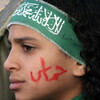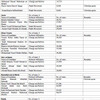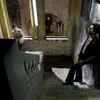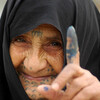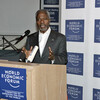
The Hamas Victory: Green Dawn, Red Dusk?
31 January 2006
Less than 24 hours after the sweeping Hamas victory in the Palestinian Legislative Council elections, it is clear that the consequences of this event are likely to be so profound that they are capable of bringing about a political tsunami once the wave finally reaches shore. Although the final implications of the elections are yet to be seen regarding how Hamas will form its governing coalition, what this means for the “peace process”, and how this will affect Palestinian-Israeli and Palestinian-World politics, certain things can already be deduced from the structure of prevailing power relations. Read more about The Hamas Victory: Green Dawn, Red Dusk?

